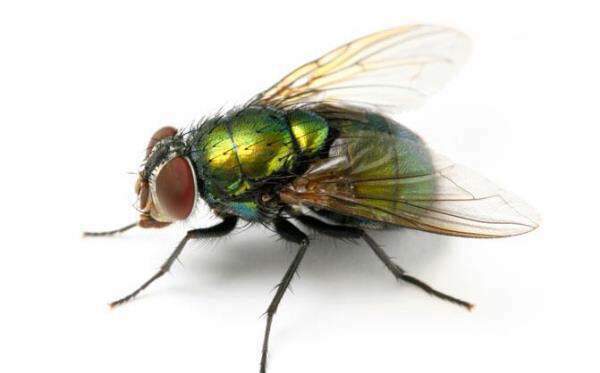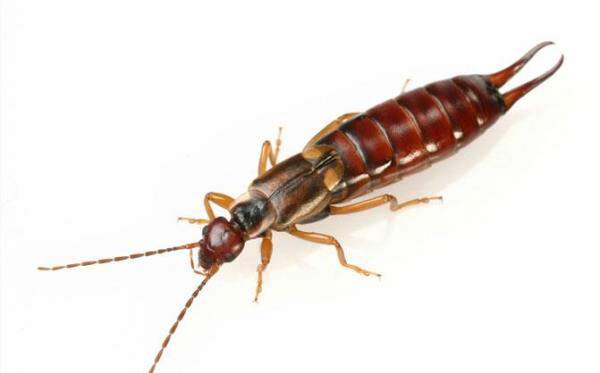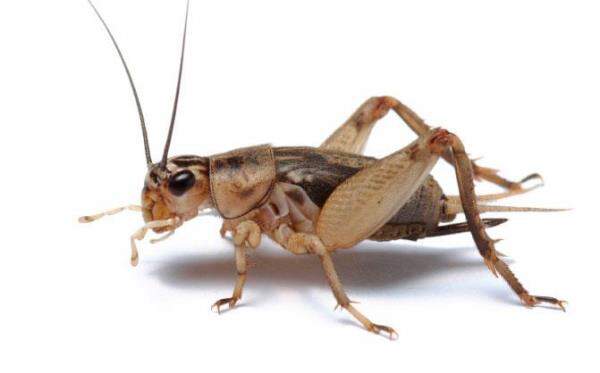Flies
If there's one thing everyone can agree on, it's that flies are annoying. There's really no other word for them. And whether you're referring to house flies, fruit flies, horse flies, cluster flies, stable flies, citrus black flies, or any other type of fly, the question is the same: what's the best way to get rid of flies? Let's gather a few fly facts first.
Meet the Fly
When people refer to "flies," they are actually referring to several different insect species, some of which look a lot alike. However, they all share a common fly life cycle:
- Eggs laid on or near a food source, which hatches into...
- Maggots, or fly larvae, that feed on the food source and molt into...
- Pupae, like butterfly cocoons, where the immature flies transform into...
- Adults. Shoo, fly!
Most flies don't live more than a few weeks, but some adult flies may spend the winter inside your home. Sometimes on the first warm day of spring, you will see them literally crawling out of the woodwork, where they've been safely hiding during the cold temperatures.
Flies feed on a variety of things, depending on the species, including old fruit, decaying food, manure, blood from a bite, carrion, etc. They also may stray indoors seeking food, warmth, or shelter.
Why Flies Are a Problem
In addition to being incredibly annoying as they buzz around the house and land on things, flies can cause a number of problems.
- They're unsanitary and can spread germs and pathogens.1 As they travel from one unpleasant thing to another, bacteria and similar pathogens hitch a ride.
- Some flies can be very aggravating and stressful to animals.
- Some flies can bite, and some (like horse flies) bite pretty hard.
How Flies Affect Your Pet
- Some fly species may annoy your dog or cat by landing on their skin. Often, just the sensation of the fly's legs on the pet's fur can drive them crazy!
- Other fly species, like horse flies, may actually bite your pet, which can be quite painful or lead to allergic reactions.
- Horses can be severely affected by flies, especially face flies,2 stable flies, and horse flies.
- Flies may be attracted to the moisture around your pet's eyes, which pets find incredibly annoying. It also may cause health issues.
How Flies Affect Your Home
- In addition to getting into the trash and food, some flies leave behind small fecal spots, especially on windows and other places where they tend to land.
- If adult flies can't get out of the house, they will eventually die (sometimes in large numbers) in attics, under windows, near vents, in the garage, or other inconvenient locations.
How Flies Affect Your Yard
- Most flies aren't particularly destructive to lawns, gardens, or trees. There isn't anything they want in those places! Flies may cluster on the sides of buildings for warmth or when looking for a crevice to spend the winter.
- It can be difficult to enjoy your yard during an outdoor barbecue or gathering when too many flies interrupt the fun (or distract you from the fun).
How to Get Rid of Flies
- Keep the house clean. This is the first thing you should try. Flies are always on the lookout for food sources (especially "garbage-like" ones). So keep your home, floors, and countertops free of crumbs, and keep your trash cans tightly closed.
- Take out the trash. Frequently empty the garbage to keep smells to a minimum.
- Keep the yard clean. There might be sources of fly food in your yard, such as dog or cat waste, compost or mulch heaps, etc.
- Clean drains. Fruit flies might be attracted to debris.
- Try a fly spray. A fly spray for the house can be used for spot treatments in specific areas where flies are a nuisance. ADAMS Flea & Tick Home Spray kills flies and fruit flies. In the yard, try an outdoor fly spray product like ADAMS Plus Yard Spray, which can eliminate citrus black flies.
- Break the cycle. Routine cleaning may interrupt the egg/maggot phase of the fly life cycle, reducing future fly populations.
- Stash the fruit. Controlling fruit flies may mean keeping your lovely bowl of fruit in the fridge rather than on the table.3
- Try sticky flypaper strips. These simple and non-toxic fly traps work well when hung near places where flies congregate. Flies land on the sticky paper, where they become trapped.4 These can work in the home, yard, and near pet areas.
- Protect your pet. An easy-to-apply pet dip product like ADAMS Plus Pyrethrin Dip can keep flies from bothering your dog or cat.
- Maintain your home. Check window screens for holes, and caulk or seal small cracks around the house where flies may squeeze through.
- Use a fogger. If the flies are getting out of control indoors, you can put a damper on their "party" with a fogger like 'ADAMS Plus Flea & Tick Indoor Fogger, which kills flies, fruit flies, house flies, and stable flies.
"Fly season" can be a real nuisance. Luckily, you have plenty of options when it comes to preventing or eliminating flies.
1. PestWorld.org. "Flies." https://www.pestworld.org/pest-guide/flies/
2. Boxler, David J. University of Nebraska-Lincoln Extension. "The Face Fly," February 2015.
3. Russell, Howard. Michigan State University Extension. "How to get rid of fruit flies in your home," 5 September 2013. https://www.canr.msu.edu/news/how_to_get_rid_of_fruit_flies_in_your_home
4. Cranshaw, W.S. and F.B. Peairs. Colorado State University Extension. "Flies in the Home," January 2017.




